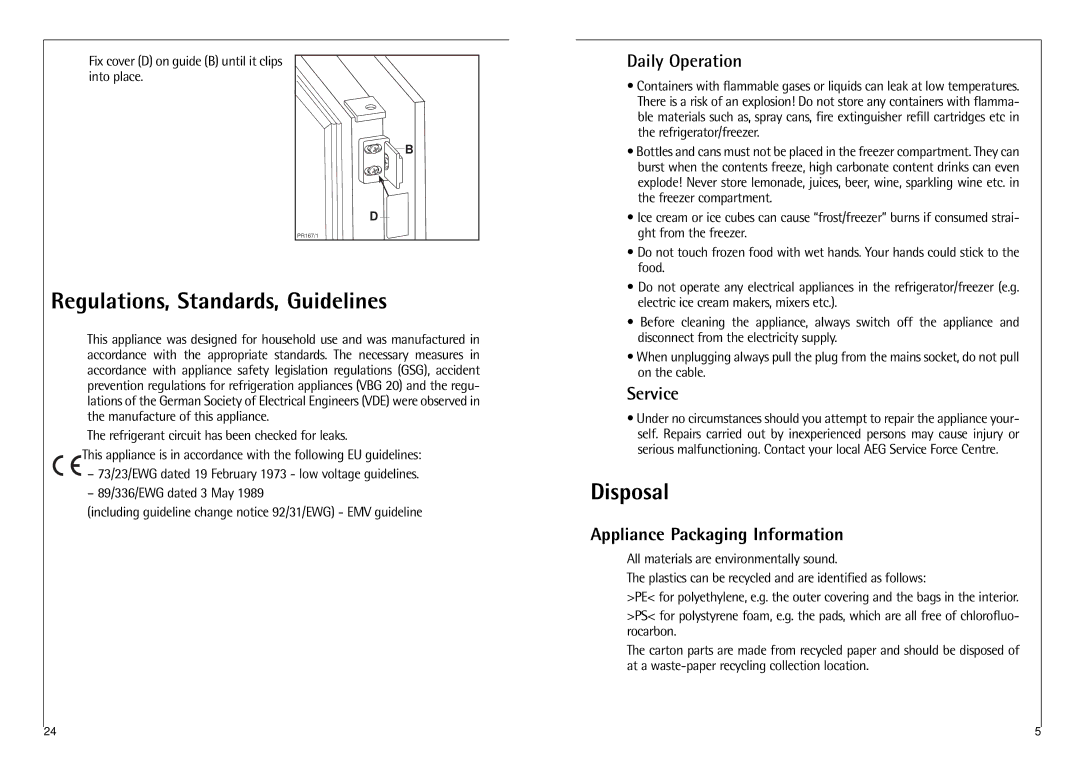
Fix cover (D) on guide (B) until it clips into place.
B
D
PR167/1
Regulations, Standards, Guidelines
This appliance was designed for household use and was manufactured in accordance with the appropriate standards. The necessary measures in accordance with appliance safety legislation regulations (GSG), accident prevention regulations for refrigeration appliances (VBG 20) and the regu- lations of the German Society of Electrical Engineers (VDE) were observed in the manufacture of this appliance.
The refrigerant circuit has been checked for leaks.
This appliance is in accordance with the following EU guidelines:
– 73/23/EWG dated 19 February 1973 - low voltage guidelines.
– 89/336/EWG dated 3 May 1989
(including guideline change notice 92/31/EWG) - EMV guideline
Daily Operation
•Containers with flammable gases or liquids can leak at low temperatures. There is a risk of an explosion! Do not store any containers with flamma- ble materials such as, spray cans, fire extinguisher refill cartridges etc in the refrigerator/freezer.
•Bottles and cans must not be placed in the freezer compartment. They can burst when the contents freeze, high carbonate content drinks can even explode! Never store lemonade, juices, beer, wine, sparkling wine etc. in the freezer compartment.
•Ice cream or ice cubes can cause “frost/freezer” burns if consumed strai- ght from the freezer.
•Do not touch frozen food with wet hands. Your hands could stick to the food.
•Do not operate any electrical appliances in the refrigerator/freezer (e.g. electric ice cream makers, mixers etc.).
•Before cleaning the appliance, always switch off the appliance and disconnect from the electricity supply.
•When unplugging always pull the plug from the mains socket, do not pull on the cable.
Service
•Under no circumstances should you attempt to repair the appliance your- self. Repairs carried out by inexperienced persons may cause injury or serious malfunctioning. Contact your local AEG Service Force Centre.
Disposal
Appliance Packaging Information
All materials are environmentally sound.
The plastics can be recycled and are identified as follows:
>PE< for polyethylene, e.g. the outer covering and the bags in the interior.
>PS< for polystyrene foam, e.g. the pads, which are all free of chlorofluo- rocarbon.
The carton parts are made from recycled paper and should be disposed of at a
24 | 5 |
